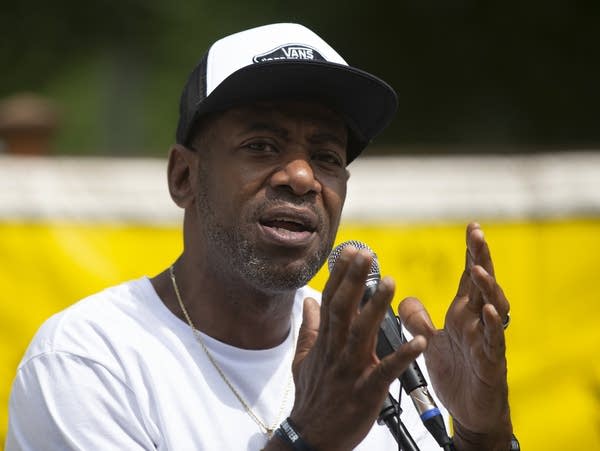Key facts about state Rep. John Thompson’s residency issues

John Thompson, a friend of Philando Castile and now state representative, speaks to the crowd during a press conference in July 2018. The DFL lawmaker is under fire this week for using a Wisconsin driver’s license despite holding office and voting in Minnesota.
Christopher Juhn for MPR News 2018
Go Deeper.
Create an account or log in to save stories.
Like this?
Thanks for liking this story! We have added it to a list of your favorite stories.


